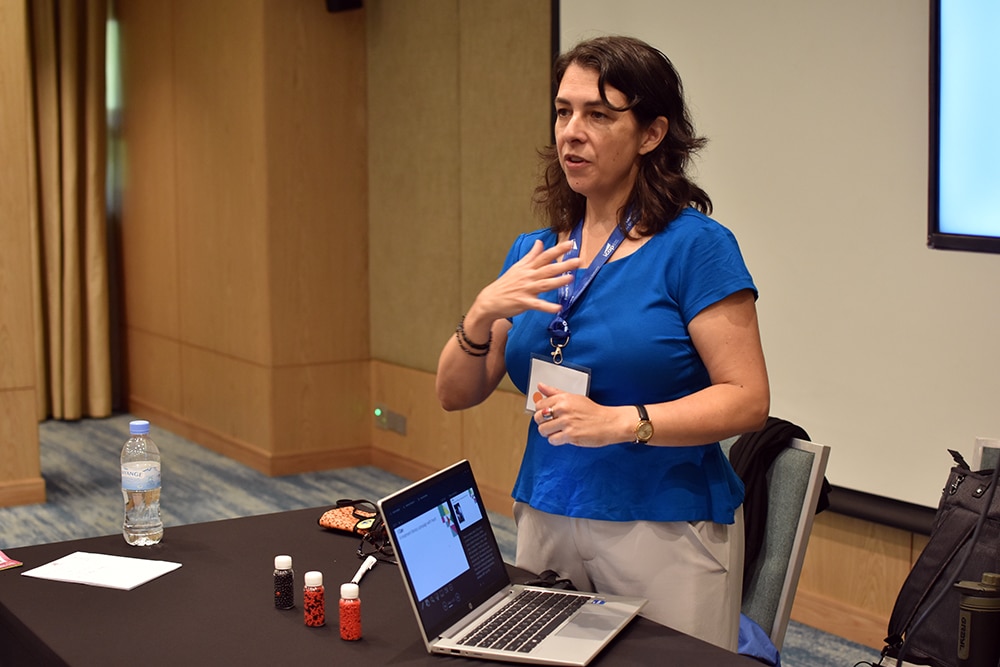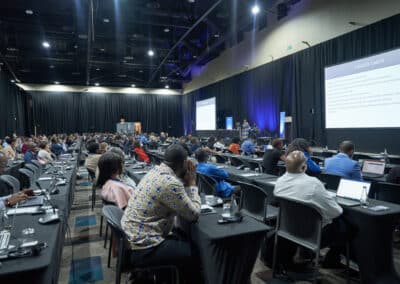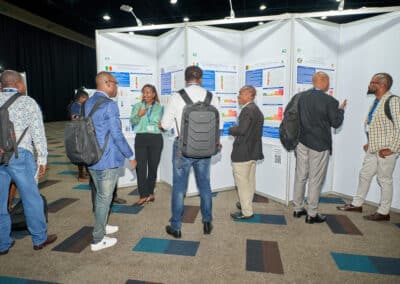CAPTION: Nina Hansen from PSI explains how the bottle concept challenges the narrative of an HIV-positive diagnosis as a death sentence. The first of three bead bottles represents a body that has been taken over by HIV [right]. The second bottle symbolizes a scenario where HIV treatment is gradually reducing the amount of HIV in the body [middle]. The last bottle represents a virally suppressed body, which means the person cannot transmit HIV to their partner.
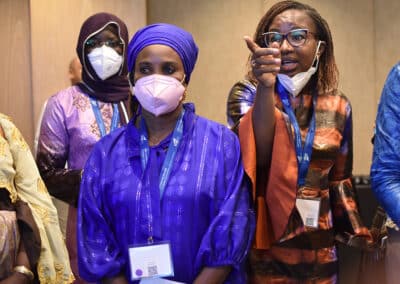
A few members of team Senegal at the August 2022 meeting. (Dr. Kouro Bousso, pictured on the right and Soukeye Ndiaye, President of the National Network
for People living with HIV (RNP+) in Senegal (left)
When Kouro Bousso, MD, MPH, differentiated service delivery (DSD) coordinator for Senegal, and the rest of her country team participated in a CQUIN meeting in Rwanda in August 2022, they found an HIV educational tool from South Africa, useful and easy to replicate.
At the August HIV Testing Across the HIV Cascade Meeting, CQUIN hosted a Tools Lab exhibition for meeting participants to showcase practical resources used to support DSD implementation. Nina Hansen, PhD, vice president of HIV and TB Programs Population Services International (PSI), showcased B-OK bead bottles – bottles containing colored beads that are a visual representation of HIV in the body and how antiretroviral therapy (ART) suppresses the virus. Hansen explained how PSI used the bottles in community outreach and adherence programs.
A year later, Senegal has implemented a similar tool in the country’s 148 antiretroviral therapy (ART) pick-up sites. “We contracted a local artisan to manufacture 300 bottles for the 148 sites after PSI gave us a sample,” said Dr. Bousso. “We adapted the tool to our socio-cultural context. For instance, in consulting our recipients of care, they suggested using white beads to symbolize healthy cells instead of the black beads used in South Africa since black sometimes has a negative connotation.”
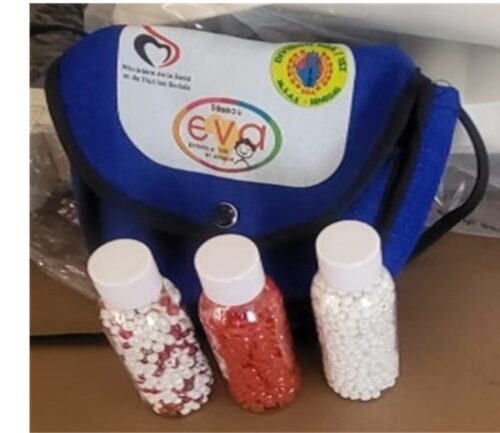
Senegal’s version of the bead bottles
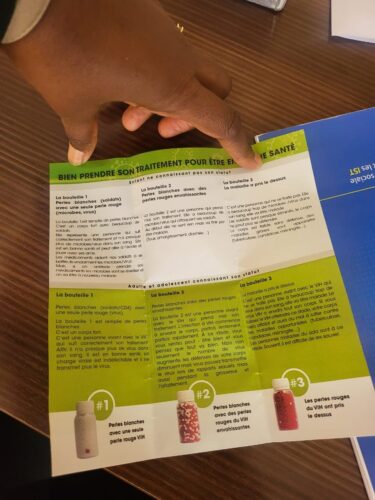
Senegal’s pamphlet
The B-OK beads tool will complement existing guidance on the clinical management of HIV infection in Senegal. “We also intend to use this tool to educate children and teenagers about HIV and viral load suppression,” said Dr. Bousso.
Currently, staff at the selected ART pick-up sites are using on-site coaching to present the tool to recipients of care. The Senegalese team also has plans to develop videos based on the B-OK bottles in local languages in collaboration with the Youth Convergence Network, a subsidiary of Senegal’s National Network of People Living with HIV (RNP+) for recipients of care to have more ownership of the tool.
“CQUIN Tools Labs are an interactive and exciting way to showcase country best practices, resources, and innovative approaches to differentiated service delivery,” said Maureen Syowai, MBChB, MSc, CQUIN deputy director (Technical). “We are pleased Senegal was able to benefit from this platform as the exchange of tools and resources is one of the primary purposes of this learning network,” she added.
At this year’s CQUIN annual meeting in November, CQUIN will host two tools lab sessions for country teams to showcase innovations.


